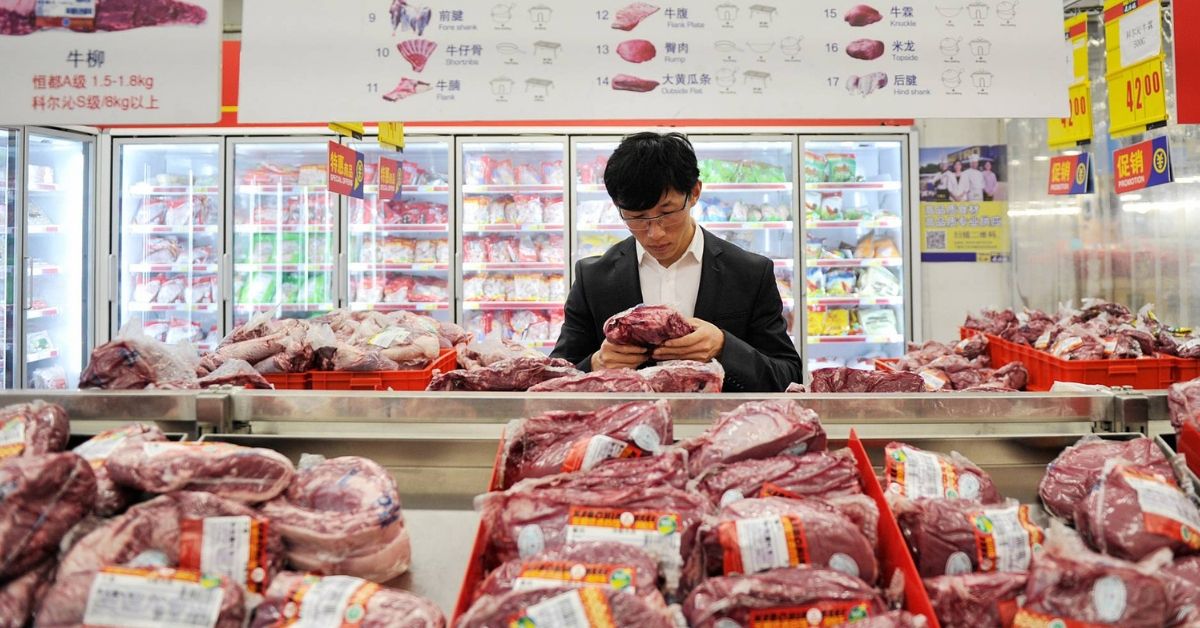RIO DE JANEIRO, BRAZIL – The Ministry of Agriculture has suspended beef exports to China. The measure meets the health protocol between the two countries for the detection of mad cow disease (BSE).
The decision comes into force this Saturday (4), according to a letter signed by the director of the Department of Inspection of Animal Products (Dipoa), Ana Lúcia Viana.
It is not yet clear when Brazilian beef exports may resume. In 2019, when Brazil recorded the last atypical case of mad cow disease, sales to China were suspended for 13 days.

The Ministry of Agriculture is investigating two suspected cases of the disease in the states of Mato Grosso and Minas Gerais. Today, the Secretary of Agricultural Defense of the Ministry of Agriculture, Livestock, and Supply confirmed that both cases are atypical, i.e., when the animal develops the disease spontaneously due to old age. The report was made after the results of the counter-test carried out in Canada.
When the cases are atypical, the resumption of exports to China tends to be fast.
The Secretary advised that the cases were registered in Nova Canaã do Norte (MT) and Belo Horizonte (MG).
“The two cases of atypical BSE (Bovine Spongiform Encephalopathy, the technical name for mad cow disease) – one in each establishment – were detected during the antemortem inspection. These are cull cows that presented advanced age and were lying down in the pens,” said the ministry in a statement.
In the statement, the ministry says that the World Organization for Animal Health (OIE) “excludes the occurrence” of atypical cases to recognize the “official risk status of the country”. Thus Brazil maintains its classification “as a country of negligible risk for the disease, not justifying any impact on trade in animals and their products and by-products.”
According to the ministry, “all sanitary risk mitigation actions were completed even before issuing the final result by the reference laboratory” of the OIE. “Therefore, there is no risk to human and animal health,” the folder said.
The ministry also said it officially notified the OIE about the cases, as provided by international standards.
The temporary suspension of meat exports to China, following sanitary protocols established between the two countries, “will take place until the Chinese authorities complete the evaluation of the information already provided about the cases.”
The Asian country is the largest buyer of Brazilian meat. Along with Hong Kong, it accounts for 60% of the shipments of Brazilian meatpackers.
Brazil has never registered the classic and most dangerous case of mad cow disease. Atypical cases, however, have occurred in 2012, 2014, and 2019.

